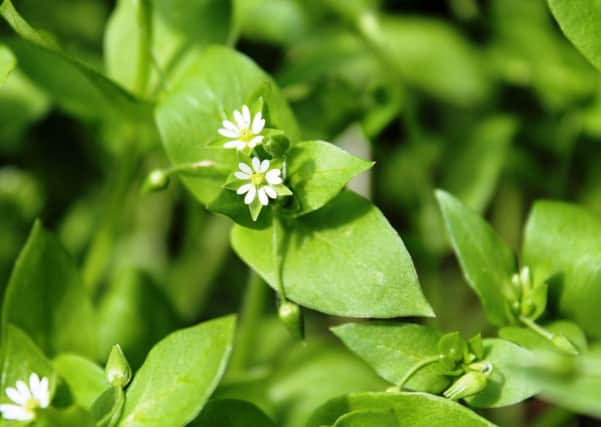Bane of our lives


Uninvited guests can be the bane of a gardener’s life. He or she spends many hours clearing ground – and the annual weeds move in. No word of thanks; they seem to think that bare earth is an open invitation to put down roots.
Some people don’t mind the occasional interloper – one man’s weed is another man’s wild flower or source of food for birds and bugs. But some weeds just don’t know how to behave, and they set out to make the most of the situation by springing up all over the place and then scattering armies of seeds to all corners of the garden.
Advertisement
Hide AdAdvertisement
Hide AdHerb Robert (Geranium robertianum) is just one such pest. It produces lots of tiny pink flowers but spreads rapidly. If you don’t want a sea of weeds, pull it up as soon as it’s spotted.
The same applies to chickweed (Stellaria media) which will instantly colonise freshly-turned ground and will flower and seed throughout the year. Certain birds enjoy it, but the best way of dealing with it is to hoe when the sun shines.
Groundsel (Senecio vulgaris) is another plant whose seeds are sought after by birds, but if you allow it time to settle in, it will colonise quicker than Napoleon ever managed to do in his heyday. Pull it out.
The same applies to shepherd’s purse (Capsella bursapastoris) which seeds quickly and repeatedly. Again, keep the hoe blade sharp and in regular use.
Advertisement
Hide AdAdvertisement
Hide AdBittercress (Cardamine hirsute) is one of those tiny, insignificant plants often found growing on the soggy compost of plants bought from certain nurseries and garden centres. It may come free but if you let it get a grip in your garden you’ll be paying for years to come. It’s a prolific seeder – remove it as soon as you spot it.
Fat hen (Chenopodium album) isn’t quite as common as those weeds already mentioned, but it can be a nuisance, and if you allow it to set seed it will make the most of your generosity by spreading amazingly quickly. All these annual pests (and there are many more) thrive in a typical English spring and summer. The damper it is, the better they like it. So, vigilance is the key to keeping them under control. You’ll never eradicate them, but at least you can show them who’s the boss.